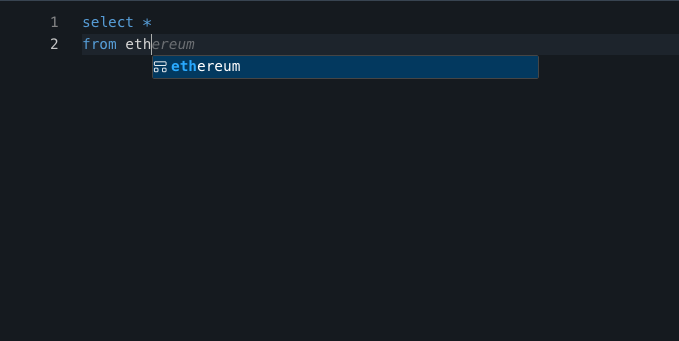As a founding collaborator of the Security Alliance (SEAL), Dedaub celebrates SEAL’s public debut, a significant milestone in crypto security. The alliance consists of more than 50 Web3 and cybersecurity organizations. Its goal is to strengthen the security of the cryptocurrency ecosystem. Before its public debut, SEAL connected users, developers, and experts and offered free Web3 simulation exercises.

SEAL’s dedication to setting high-security benchmarks within the crypto ecosystem aligns with our core capabilities. Dedaub is bringing to the table world-leading technologies and expertise in static and dynamic program analysis, reverse engineering, and ethical hacking. In the context of SEAL, we can contribute to developing more robust defense mechanisms against threats and ensure the blockchain ecosystem’s safety.
Dedaub supports the Whitehat Safe Harbor initiative and SEAL proactivity. This empowers ethical hackers to use cutting-edge tools like MEV bots to monitor and safeguard projects easily. The goal is to respond to challenges and incidents like the Nomad bridge hack.
Dedaub is proud to be part of SEAL, driving towards a more secure decentralized future.
Seal’s Public Debut | The security culture
By its very nature, the crypto market fosters a rigorous security culture. Its foundation on blockchain technology—a bastion of decentralized security—demands constant vigilance and innovation from its participants. It encourages the development of sophisticated security measures designed to protect against a wide range of threats.
Crypto security constantly changes and adapts to meet the challenges of advanced threats. Its strength relies on its community’sdge and expertise, including developers, researchers, and users, who work together to protect the infrastructure. Their collective efforts safeguard the system, embodying the core values that make Web3 a unique, resilient, and ever-growing reality.
Seal’s Public Debut | The security researchers’ playground
Crypto offers an exciting platform for security researchers, including those from web2 backgrounds, due to its complex challenges, high stakes, and the immediate impact of their work. This field merges theoretical knowledge with practical application, creating a rich environment for problem-solving.
Collaborating with SEAL through initiatives like SEAL Drills allows researchers to contribute while expanding their skill set significantly. These drills offer hands-on experience in real-world scenarios, enhancing their technical skills and understanding of blockchain intricacies. SEAL Drills prepare them to face formidable challenges and fosters a collaborative learning atmosphere with seasoned experts, making an ideal space for deploying and honing their security skills.
The collective and hands-on approach is crucial, especially when considering the advanced tools at our disposal, such as MEV bots, and the legal complexities surrounding their use.
Seal’s Public Debut | The Impact of MEV Bots under the Safe Harbor Agreement
The Whitehat Safe Harbor Agreement that SEAL promotes provides a legal framework for ethical hackers to conduct emergency rescues, primarily using MEV bots. This allows the community to monitor suspicious activities and take protection actions (when a protocol is under attack) without facing legal consequences.
The open and decentralized nature of cryptocurrency, which includes public code and lack of gatekeepers, makes it susceptible to hacking attempts. Therefore, it is important that security researchers are incentivized to protect it as much as attackers are motivated to steal funds.
In the past, many developers and security researchers were discouraged from assisting due to legal ambiguity with their employers. SEAL is promoting this initiative following its community members who regretted that more people would help if a legal framework existed.
Dedaub is committed to SEAL’s mission to protect decentralization and urges the community to join the cause.
About Security Alliance (SEAL)
Security Alliance (SEAL), established with the support of blockchain innovators, has quickly become a cornerstone in the advancement of Web3 security. This alliance represents a collaborative effort among premier experts, from audit firms to ethical hackers. It is dedicated to pushing the security boundaries in the Web3 space. As one of its founding members, Dedaub has been at the forefront of this initiative, driven by a mutual commitment to bolster Web3 security.
SEAL operates as a US 501(c)(3) nonprofit organization with the mission to protect the decentralized internet. Bringing together a diverse group of security experts—including auditors, bug bounty hunters, foundation security leaders, security researchers, and ethical hackers—marks a significant step in social coordination across different web3/crypto ecosystem sectors.
The alliance innovates with several key initiatives in the crypto ecosystem’s security framework. SEAL911 and SEAL Drills, for instance, are designed to provide immediate assistance and training against security threats, showcasing SEAL’s proactive approach to community support.
Additionally, the Safe Harbor Agreement for Whitehats, spearheaded by SEAL, emphasizes the alliance’s forward-thinking strategy to prepare for and mitigate future security threats. This agreement lays down a legal framework enabling ethical hackers to contribute to the crypto ecosystem’s security without fearing legal repercussions.
We invite the community to engage and provide feedback on the Whitehat Safe Harbor Agreement proposal hosted on Github. We welcome your insights until Pi Day, March 14, 2024.


